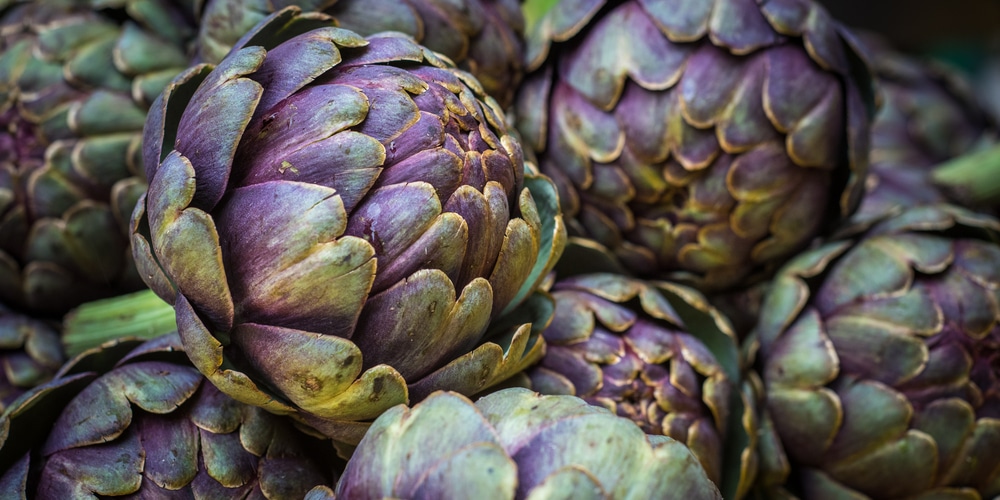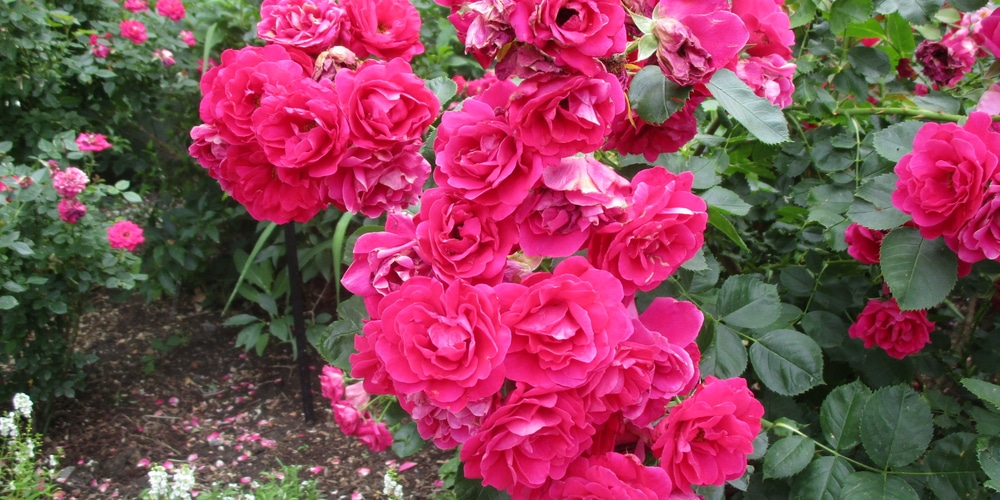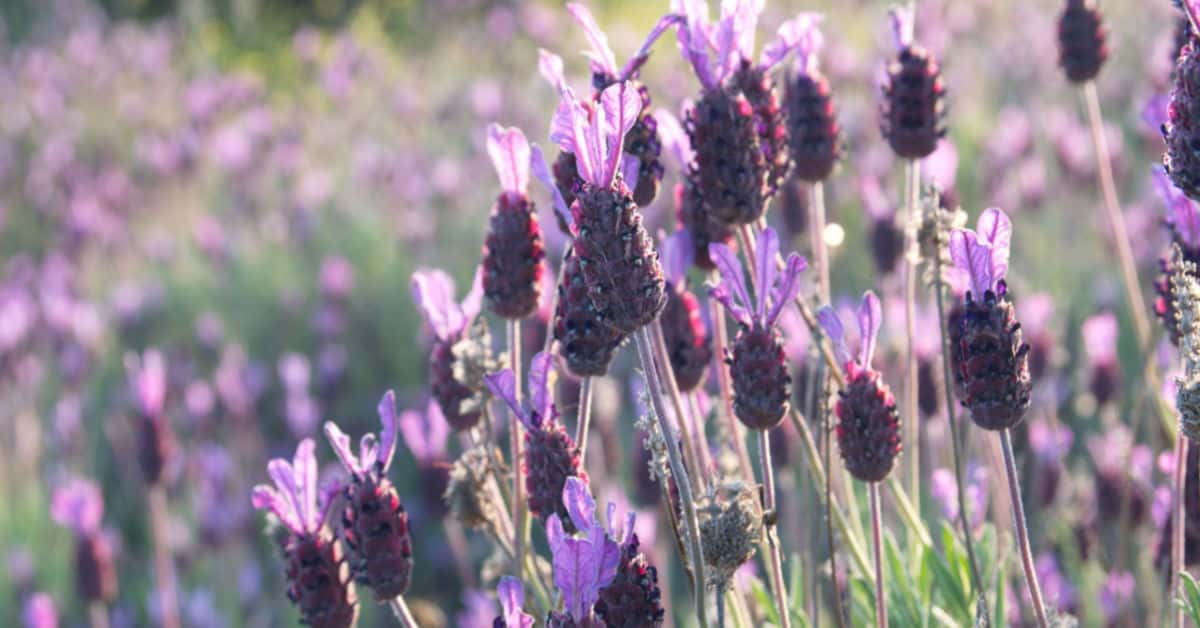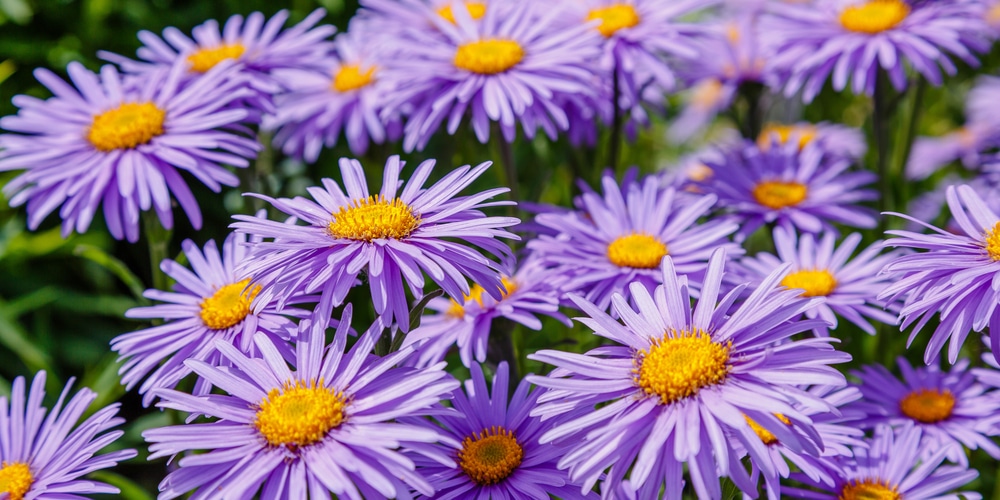If you’re new to the world of gardening, you may not realize that pine needles make excellent mulch for certain plants. Plants in acidic soil do well with pine needles. They provide insulation, control weeds, and help retain moisture.
But plenty of plants don’t like pine needles and don’t do well with them in their surrounding mulch. Knowing what plants don’t like pine needles can save you from mistakenly adding them to your garden or planting them at the base of a pine tree.
What Plants Don’t Like Pine Needles?
Here are some plants to avoid if you have lots of pine trees in your yard:
Boxwood Shrubs
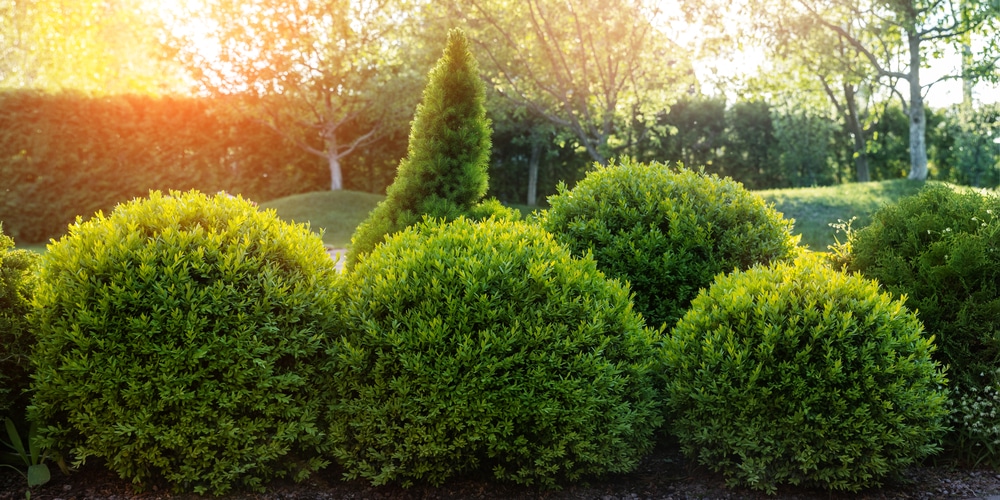
The boxwood shrub, a member of the Buxus genus, is an ornamental evergreen plant. Even though it shares the latter description with pine trees, it is not a fan of pine needles.
Boxwoods have shallow roots that are susceptible to root rot. Because pine needles help retain moisture, they’re not a good choice for this plant.
These shrubs also prefer neutral pH soil. Pine needles can lower the pH, which can impact healthy growth.
Artichoke Plants
Artichokes are not the most commonly grown plant in most people’s gardens, but they are another type of vegetation that does not like pine needles.
This perennial vegetable likes well-drained, neutral dirt– both of which pines needles can disturb. Pine needles can cause too much water to remain in the soil, which can cause root rot. It can also interfere with a good pH balance.
An organic, balanced fertilizer works best for artichoke plants. A thick layer of mulch is good for artichokes too, but pine needles take too long to break down.
Roses
Rose bushes work well to brighten and beautify any landscaping, but they’re one of several plants that don’t like pine needles.
The acidity of the soil in which you plant your roses is crucial to cultivating colorful blooms. Instead of pine needles, opt for a sugar cane mulch that breaks down much quicker and won’t increase the soil’s acidity.
Lavender
There are plenty of reasons why you might want to plant lavender in your yard or garden. It’s a beautiful plant famous for its soft, purple hues. The scent is calming and soothing, plus it can help keep certain insects like mosquitoes at bay.
But lavender plants do not like pine needles around them. Despite them being easy plants to care for, they have an important preference: well-draining soil. A layer of pine needles might look nice with the purple flowers of a lavender plant, but they will retain too much water for their roots.
Decorative Garlic
Decorative garlic plants may not sound very appealing, but they’re beautiful ornamental flowers that bloom in several different colors, including blue, purple, pink, yellow, and white.
The rounded flowers enjoy plenty of sunlight, so it’s never a good idea to plant them at the base of pine trees – regardless of how stunning their bright colors look against a dark green backdrop.
These plants also do poorly in acidic soil. Pine needles, whether from pine trees or in mulch, can increase the acidity of soil and ruin these types of flowers. Decorative garlic plants like drier soil, so it’s best to avoid a hefty layer of slow-decomposing needles.
Asters
Asters are gorgeous, upright flowers that thrive at the end of summer and give us stunning colors to enjoy in the early months of fall. These dainty flowers look very similar to daisies and typically sport purple or blue shades.
But asters, also known as frost flowers, are another type of vegetation that need well-draining soil. Using pine needle mulch or planting them beneath pine trees can cause too much water to build up.
Final Thoughts
Pine trees can be a fantastic addition to landscaping, and pine needle mulch can be remarkably beneficial to all kinds of plants. But as far as the plants above, it’s best to keep them away from pine trees and use different types of mulch to surround them.
